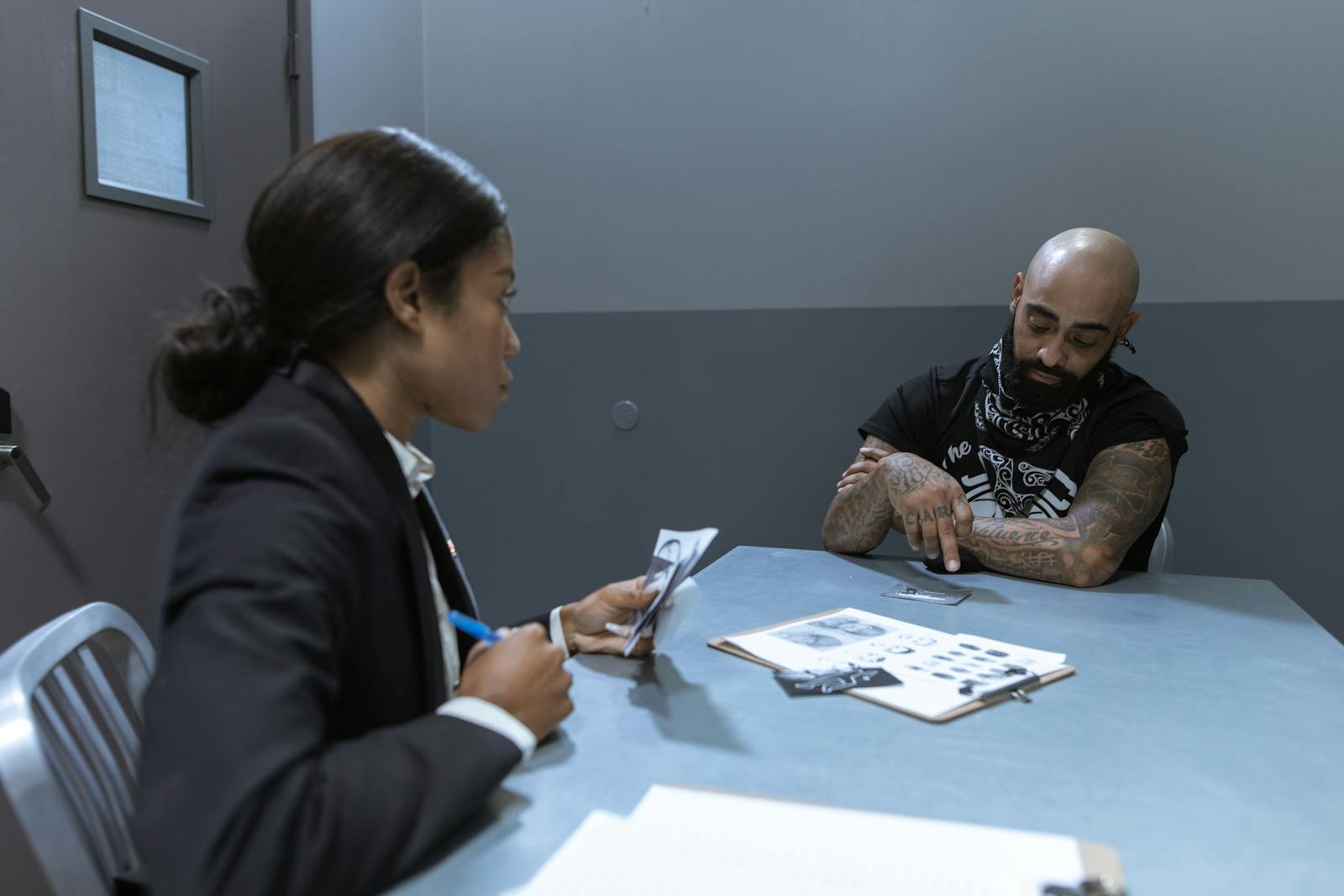Understanding your rights and the nuances of legal proceedings is crucial. This blog aims to shed light on the pivotal question: “Should You Talk to the Police Without a Lawyer?” Here at Strategic Lawyers, our commitment to legal excellence and informed decision-making drives us to share valuable insights on this topic. Our objective is to provide you with a comprehensive guide, empowering you with knowledge and best practices in such scenarios.
Understanding Your Rights
In Australia, the legal framework ensures the protection of fundamental rights for individuals during interactions with the police. It’s crucial to understand these rights, especially in Queensland, where specific laws and statutes apply.
The Right to Silence: One of the most crucial rights you have is the right to silence. This means that, generally, you are not obliged to answer questions posed by the police, except for providing your name and address. The right to silence is a cornerstone of the legal system, designed to protect individuals from self-incrimination.
The Right to Legal Representation: The right to consult with a lawyer before deciding to answer police questions or make a statement is essential. This right ensures that your legal position is protected and that you do not unintentionally compromise your legal standing.
Relevant Queensland Laws and Statutes:
- The Police Powers and Responsibilities Act 2000 (QLD) is a key piece of legislation that outlines the powers and responsibilities of the police in Queensland, including provisions for questioning and detaining individuals.
- The Evidence Act 1977 (QLD) governs various aspects of evidence, including the right to silence and its implications in legal proceedings.
Understanding these rights is not just about knowing the law; it’s about ensuring that you are equipped to handle situations where your freedom and rights are at stake. While Strategic Lawyers is here to provide guidance and support, this knowledge is your first line of defence in safeguarding your legal interests.
The Role of a Lawyer During Police Interrogations
When faced with police interrogations, the presence of a lawyer can be the defining factor between a fair process and potential missteps. Understanding the role of a lawyer in such situations is crucial for anyone navigating the legal landscape.
Why Having a Lawyer is Crucial: A lawyer serves as your advocate and protector of your legal rights during police interactions. They ensure that the police conduct the interrogation within the bounds of the law and that your rights, such as the right to silence, are respected. Lawyers are trained to understand the intricacies of the law and can provide advice on whether or not you should answer certain questions, thereby safeguarding you from inadvertently incriminating yourself.
Protection Against Self-Incrimination: One of the primary roles of a lawyer is to prevent self-incrimination. This is particularly important in the context of police interrogations, where the pressure and complexity of the situation might lead you to say something that could be used against you in court. A lawyer can guide you on how to respond to questions or advise you to exercise your right to silence when appropriate.
Ensuring Fair Treatment: Lawyers also play a vital role in ensuring that you are treated fairly during police interrogations. They can object to inappropriate questioning techniques or intervene if they feel that their rights are being infringed upon. Their presence can act as a deterrent against any potential overreach by law enforcement officers.
Risks of Speaking to Police Without Legal Counsel
Engaging in dialogue with the police without the presence of legal counsel can be fraught with risks. This section delves into the potential pitfalls of such interactions, particularly in the context of Townsville, Australia, and underscores the importance of having a lawyer by your side.
Potential Risks and Pitfalls: One of the primary risks of speaking to the police without a lawyer is the possibility of inadvertently incriminating oneself. Without a thorough understanding of the law, individuals may provide information or make statements that could be misconstrued or used against them in legal proceedings. This is especially true in high-pressure situations where the individual may not be thinking clearly.
Statistics and Real Cases: While specific cases cannot be detailed due to confidentiality, general trends and statistics highlight the risks involved. For instance, research has shown that individuals without legal representation are more likely to make admissions or statements that lead to their conviction. In Townsville, there have been instances where individuals without legal counsel have faced harsher outcomes compared to those who had legal representation from the outset.
Complexity of Legal Language: The legal language is often complex and laden with nuances that can easily be misinterpreted by laypersons. Legal terms and phrases might have specific meanings in a legal context, which can differ significantly from their everyday usage. This complexity heightens the risk of misunderstanding and miscommunication during police interrogations.
Possibility of Misinterpretation: The risk of misinterpretation is not limited to the individual’s understanding of legal jargon; it also extends to how their words might be interpreted by law enforcement. Without a lawyer to clarify or contextualise statements, there is a significant risk that what an individual says could be taken out of context or given a meaning that was not intended.
In Townsville, as in other parts of Australia, these risks underscore the importance of seeking legal counsel when dealing with police matters. At Strategic Lawyers, we have witnessed numerous instances where early legal intervention could have significantly altered the outcome of a case.
How to Respond if Approached by Police?
Being approached by the police for questioning can be an unsettling experience. It’s crucial to handle such encounters with composure and awareness of your rights. Here is a step-by-step guide, particularly relevant for residents in Townsville, Australia, on how to respond if you find yourself in this situation.
Step 1: Stay Calm and Composed
- Remain Calm: The first and most important step is to stay calm. Keeping a clear head will help you think more rationally and communicate more effectively.
- Be Polite: Always be polite and respectful in your interactions. Hostility or aggression can escalate the situation unnecessarily.
Step 2: Understand Your Rights
- Know Your Rights: Be aware of your rights, such as the right to silence and the right to legal representation. You are not obliged to answer any questions beyond providing your name and address unless under specific legal circumstances.
- Ask for Clarification: If you’re unsure why you’re being questioned, politely ask for clarification. Understanding the context can help you respond appropriately.
Step 3: Request Legal Representation
- Politely Request a Lawyer: If you decide to exercise your right to legal representation, state this clearly and politely. For example, you could say, “I would like to speak to a lawyer before answering any questions.”
- Avoid Further Discussion: Once you have requested a lawyer, refrain from discussing your case or answering further questions until your lawyer is present.
Step 4: Follow Legal Advice
- Wait for Your Lawyer: Be patient and wait for your legal counsel. Do not feel pressured to fill the silence with conversation.
- Follow Your Lawyer’s Advice: Once your lawyer arrives, follow their advice. They will guide you on how to answer questions and protect your rights.
Step 5: Maintain Awareness
- Be Aware of Your Surroundings: Pay attention to the environment and who is present during the questioning.
- Remember Details: Try to remember the details of the interaction, as these can be important later on.
The Role of Legal Advice in Protecting Your Interests
The importance of obtaining early legal advice cannot be overstated, especially when it comes to protecting your individual rights and interests. This section explores how timely legal counsel can prevent complications and the critical role a lawyer plays in any legal process.
Preventing Complications with Early Legal Advice:
- Early Intervention: Seeking legal advice at the earliest opportunity can significantly reduce the risk of complications. A lawyer can guide you on the right course of action from the start, potentially averting missteps that could adversely affect your case.
- Informed Decisions: Early legal advice ensures that you make informed decisions. Understanding the implications of your choices and actions in the legal context is crucial for protecting your interests.
Benefits of Having a Lawyer Present:
- Expert Guidance: A lawyer provides expert guidance through the complexities of legal procedures and documentation. Their expertise is invaluable in navigating the often intricate and nuanced legal landscape.
- Advocacy and Representation: Lawyers act as your advocate and representative, ensuring that your side of the story is heard and that your rights are vigorously defended.
- Negotiation and Mediation: In many cases, lawyers can negotiate or meditate on your behalf to reach a favourable outcome without the need for prolonged legal proceedings.
Understanding Legal Rights and the Role of a Lawyer:
- Knowledge of Rights: A fundamental aspect of legal advice is gaining a thorough understanding of your legal rights. This knowledge empowers you to make decisions that are in your best interest.
- Safeguarding Rights: Lawyers play a pivotal role in safeguarding your rights. They ensure that you are treated fairly under the law and that your rights are not infringed upon during legal processes.
The role of legal advice in protecting your interests is paramount. Whether it’s a minor legal query or a significant legal issue, the input of a knowledgeable lawyer can be the difference between a favourable outcome and a complicated legal battle. Understanding your legal rights and having a professional to safeguard them is not just a benefit; it’s a necessity in ensuring justice and fairness in any legal matter.
Navigating Legal Waters: A Strategic Approach
In Townsville, and indeed throughout Australia, the legal landscape can be challenging to navigate without an experienced criminal lawyer by your side. It’s a realm where knowledge is power, and having the right guidance is akin to having a compass in uncharted waters. This is where the role of a legal firm like Strategic Lawyers becomes crucial. While this blog serves as an informative guide, the expertise and experience of a dedicated legal team like Strategic Lawyers can provide the tailored advice and representation needed in various legal matters.
Whether you find yourself needing legal advice, facing police questioning, or simply seeking to understand your rights better, remember that early and expert legal counsel is your best ally. Strategic Lawyers stand ready to offer that expertise and guidance, ensuring that your legal rights are protected and your voice is heard.






